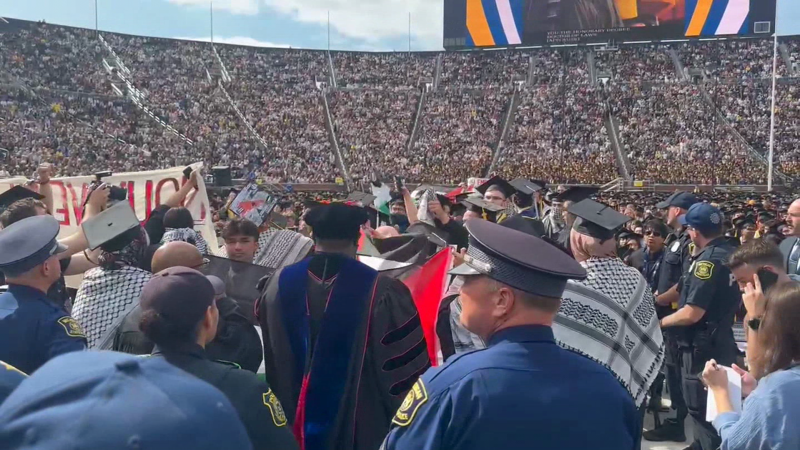It is embarrassing to have to type this sentence, but type it we will: If and when there are no shelter beds available, it is unacceptable for a city or town to make it a crime for individuals to fall asleep outdoors. Though Grants Pass, Ore., insists it is only prohibiting behavior, not the people themselves, that’s a distinction without a difference when it refers to a basic, involuntary human need like sleep. The U.S. Supreme Court should invalidate its attempts to punish those who fall asleep outside.
To underscore the point, though it’s technically illegal for anyone to doze off outdoors anywhere, the town uses the statute only to go after those who have no homes. If you’re well-dressed and well-fed and clean and begin to drift off on a bench on a lazy summer day or while stargazing in a park late at night, there will be no citation or arrest; it’s only if you have no place else to go that this activity becomes a public offense.
It’s important to say what we don’t mean. We don’t mean that a dense city with a right to shelter, like New York, cannot enforce rules against sleeping rough on sidewalks and in parks overnight and on subway platforms. In this case, individuals without homes have other options — and when it is cold, those individuals are endangering themselves, which can trigger government intervention.
We don’t mean that a city or town cannot prohibit encampments, where people cluster and set up tents and collect other materials. That is unsanitary and unsafe, as is public urination or defecation. Public health and order and safety should permit the regulation and even punishment of many behaviors that tend to overlap with homelessness.
But banning outdoor sleep altogether, like banning outdoor eating or even breathing, is so expansive a prohibition that the Supreme Court should indeed rule that it violates the Eighth Amendment’s bar on “excessive fines and unduly harsh penalties.”
So asserted Justice Ketanji Brown Jackson, who in oral arguments on Monday smartly pointed out that there might be ample sanitation rationale to bar public eating — but that to do so would cruelly target only those who have no choice but to nourish themselves outdoors, forcing them and only them to starve. “It seems both cruel and unusual to punish people for acts that constitute basic human needs,” she said.
The attorney for the town was right to say that regulating homelessness — and helping homeless people, who sometimes struggle with mental health problems or drug addiction — involves complicated choices and tradeoffs. But she was wrong to suggest that every choice should be left in the realm of policy, with no basic rights to be protected by the judiciary ever at stake.
“Where do we put them if every city, every village, every town lacks compassion and passes a law identical to this, where are they supposed to sleep?” asked Justice Sonia Sotomayor. “Are they supposed to kill themselves not sleeping?”
No, the Grants Pass lawyer would have replied if she was being honest, they can sleep all they wish in jail, locked up — an answer that would’ve laid bare the insanity and brutality of enforcing a law such as this one.








More News
Mystik Dan wins 150th Kentucky Derby by a nose in a 3-horse photo finish at Churchill Downs
Unlike last season, Liberty stars progressing through training camp injury-free with less distractions
Former Brooklyn Nets guard Darius Morris found dead at 33